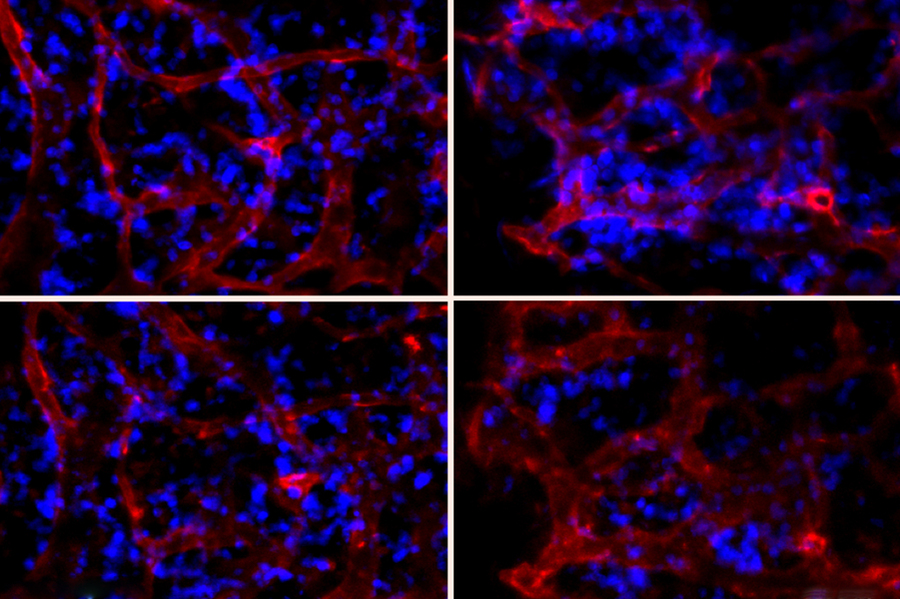
by Evan Lerner
Using specialized nanoparticles, researchers from Penn Engineering and the Massachusetts Institute of Technology (MIT) have developed a way to turn off specific genes in cells of bone marrow, which play an important role in producing blood cells. These particles could be tailored to help treat heart disease or to boost the yield of stem cells in patients who need stem cell transplants.
This type of genetic therapy, known as RNA interference, is usually difficult to target to organs other than the liver, where nanoparticles would tend to accumulate. The researchers were able to modify their particles in such a way that they would accumulate in the cells found in the bone marrow.
In a recent Nature Biomedical Engineering study, conducted in mice, the researchers showed that they could use this approach to improve recovery after a heart attack by inhibiting the release of bone marrow blood cells that promote inflammation and contribute to heart disease.
“If we can get these particles to hit other organs of interest, there could be a broader range of disease applications to explore, and one that we were really interested in in this paper was the bone marrow. The bone marrow is a site for hematopoiesis of blood cells, and these give rise to a whole lineage of cells that contribute to various types of diseases,” says Michael Mitchell, Skirkanich Assistant Professor of Innovation in Penn Engineering’s Department of Bioengineering, one of the lead authors of the study.
Marvin Krohn-Grimberghe, a cardiologist at the Freiburg University Heart Center in Germany, and Maximilian Schloss, a research fellow at Massachusetts General Hospital (MGH), are also lead authors on the paper, which appears today in Nature Biomedical Engineering. The paper’s senior authors are Daniel Anderson, a professor of Chemical Engineering at MIT and a member of MIT’s Koch Institute for Integrative Cancer Research and Institute for Medical Engineering and Science, and Matthias Nahrendorf, a professor of Radiology at MGH.
Mitchell’s expertise is in the design of nanoparticles and other drug delivery vehicles, engineering them to cross biological barriers that normally block foreign agents. In 2018, he received the NIH Director’s New Innovator Award to support research on delivering therapeutics to bone marrow, a key component of this new study.

Read the full story at Penn Engineering Today.
